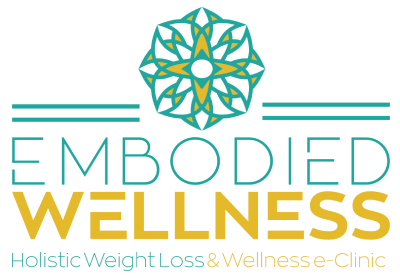Why Lectins Lead to Inflammation and Weight Gain?

Why Peptides are Effective for Weight Loss
August 21, 2021Dr. Gundry popularized the term “lectin-free diet”, and it changed the way the natural and holistic health food markets looked at the supposed healthy foods we eat. Embodied Wellness’ Holistic Weight Loss Program was inspired by health food pioneers who modelled an anti-inflammatory diet. Most Americans rely on the recommendations of the USDA food pyramid as a dietary guide to determine what foods to eat and the appropriate serving sizes. However, with the growing concerns of disease, illness, and weight gain these supposed “healthy foods” like wheat and dairy can produce, and the quest to search for more alternative, fringe type of dietary lifestyle approaches, more and more people have become interested in foods that reduce illness and inflammation, and thus improve one’s overall quality of life.
A lectin-free diet may be the answer to those looking to not only lose weight, but to reverse once considered irreversible chronic illnesses and even possible cancers. But what is a lectin-free diet, and how can it help prevent weight gain and disease?
To understand what a lectin-free diet entails, it is important to first learn about what lectins are.
A little lectin 101 if you will…
Lectins – What They Are and What They Do?
Lectins are plant proteins that bind to carbohydrates. They are found in plants and the seeds, fruits, and vegetables they bear. Plants utilize lectins as a defense mechanism from predators who may try to consume them or the “goodies” (seeds, fruit, and veggies) they produce. Unripen fruits and veggies have a higher lectin content compared to ripen fruits and veggies by design as to communicate to animal predators in nature that they are not ready yet for consumption. Consequences of predators eating unripen produce with high lectin content can include problematic digestive problems and flu-like symptoms (Gundry, 2017).
Humans who consume lectin-rich foods experience the same consequences as the animal predators who eat these plants in nature. That is, they may experience a gamut of symptoms from the mildest form of gas and bloating to more serious consequences of irritable bowel disease, obesity, chronic inflammation, and autoimmune diseases.
Lectins resist being broken down in the intestinal gut and thrive in more acidic environments. Because of their binding properties, they bind not only carbohydrates, but some potent lectins bind red blood cells together, causing agglutination, and leading to severe blood clots (never eat raw kidneys for this reason!). They can even bind certain viruses and bacteria together and attach themselves to the gut or other vital organs, tricking the immune system into thinking parts of the gut or organs are harmful. All of these events can start a cascade of inflammatory processes leading to systemic inflammation and autoimmune diseases, like irritable bowel disease, type 1 diabetes, or rheumatoid arthritis.
Because lectins are resistant to being broken down in the gut, their attachment to gut walls can cause enzymatic degradation of cell wall structures, leading to leaky gut syndrome and alteration of the gut flora. What this ultimately means is that food content normally kept inside your intestinal walls escapes the gut and enters into your bloodstream, causing worsening systemic inflammation. Malnutrition, poor metabolism, and known digestive diseases, like Crohn’s, irritable bowel diseases, and other GI issues may result because of altered gut microbiota. Continued cellular assaults by lectins and their inflammatory sequelae can lead to changes in cellular structures, and possibly putting one at risk for certain cancers.
Weight gain can also result as lectins are associated with insulin insensitivity and resistance. Furthermore, the wheat and dairy products, both of which contain lectins, are known to “bulk up” those who consume these foods (think growth hormones in milk, which is needed to fatten up newborns for survival).
So, Should I Just Go Gluten-Free?
By now, it is known that wheat and wheat containing products and proteins (wheat germ agglutinin) have some of the highest concentration of lectins. However, it would be premature to just consume a gluten-free diet. That is because non-wheat containing foods also contain lectins.
Here are a list of some gluten-free foods that contain lectins:
- Corn
- Quinoa
- Brown rice
- Wild rice
- Soy
- Soy protein
- Peas
- Legumes
- Tofu
- Cashews
- Peanuts
- Pumpkin seeds
- Tomatoes
- Cucumbers
- Eggplants
- Milk
- Canola oils
- Ketchup
- Etc.
*For a more complete list and to learn of recipes, please visit www.theembodiedwellness.com
How Do I Avoid Lectins?
The best way to avoid lectins are to avoid eating foods that contain them. But not so fast! Lectins are found in most foods we eat. And not all lectins are bad. According to research from Harvard School of Public Health, some lectins act as antioxidants, preventing cells from damage caused by free radicals, while others help slow down the digestive track preventing spikes in blood sugars. However, for the vast majority of people, the risks of harmful lectins outweigh the benefits. Though you won’t (and probably shouldn’t) eliminate all lectins from your diet, you can drastically reduce the ones causing you weight gain and illness so that you can go on to live a more fulfilling life.
At Embodied Wellness’ Holistic Weight Loss Program, we work with you in customizing an anti-inflammatory dietary plan that is free from harmful lectins, and other supposed healthy foods that lead to bodily inflammation and cellular dysfunction. By progressing through our 3 levels towards dietary freedom, you will be equipped with the tools you need to live lectin-free. We help you every step of the way in accomplishing your weight loss and wellness goals and providing nutritional coaching to set you up for success.
Resources:
Gundry, S. R. (2017). The plant paradox: The hidden dangers of healthy foods that cause disease and weight gain. HarperCollins Publishers. New York, NY.
Harvard School of Public Health. (n. d.). Lectins. Retrieved from https://www.hsph.harvard.edu/nutritionsource/anti-nutrients/lectins/




